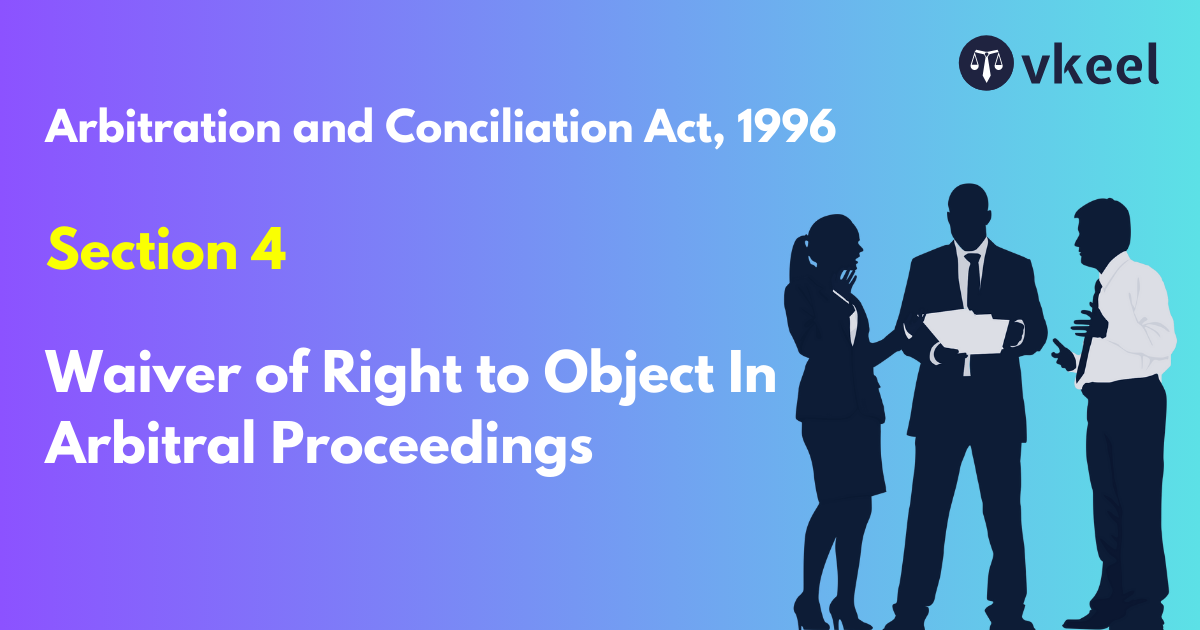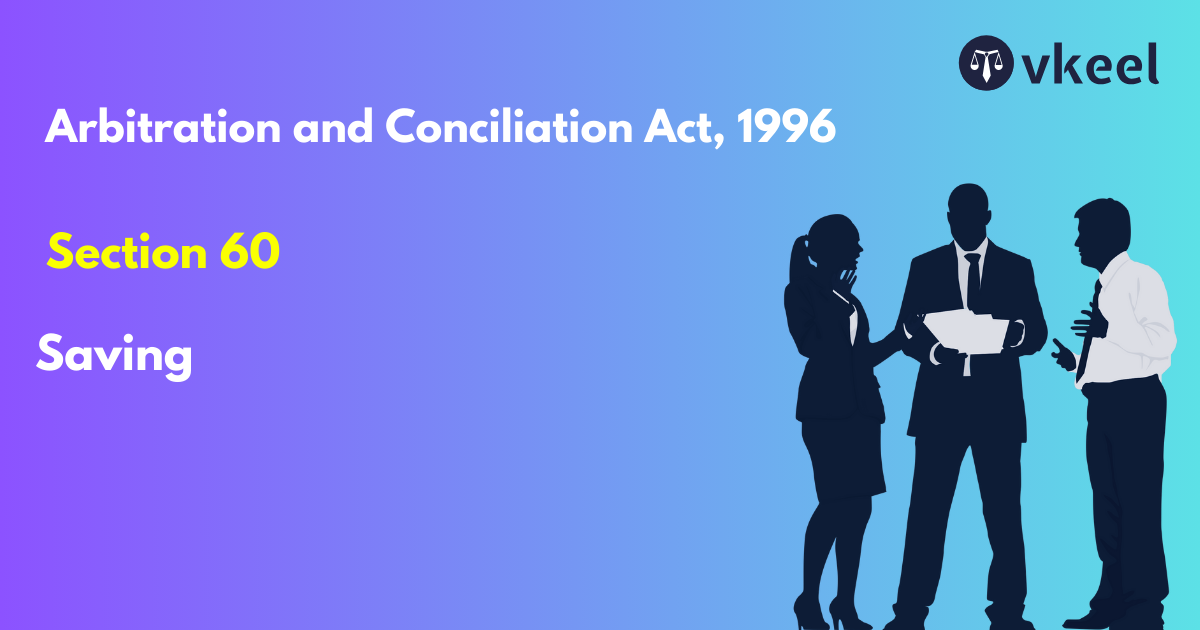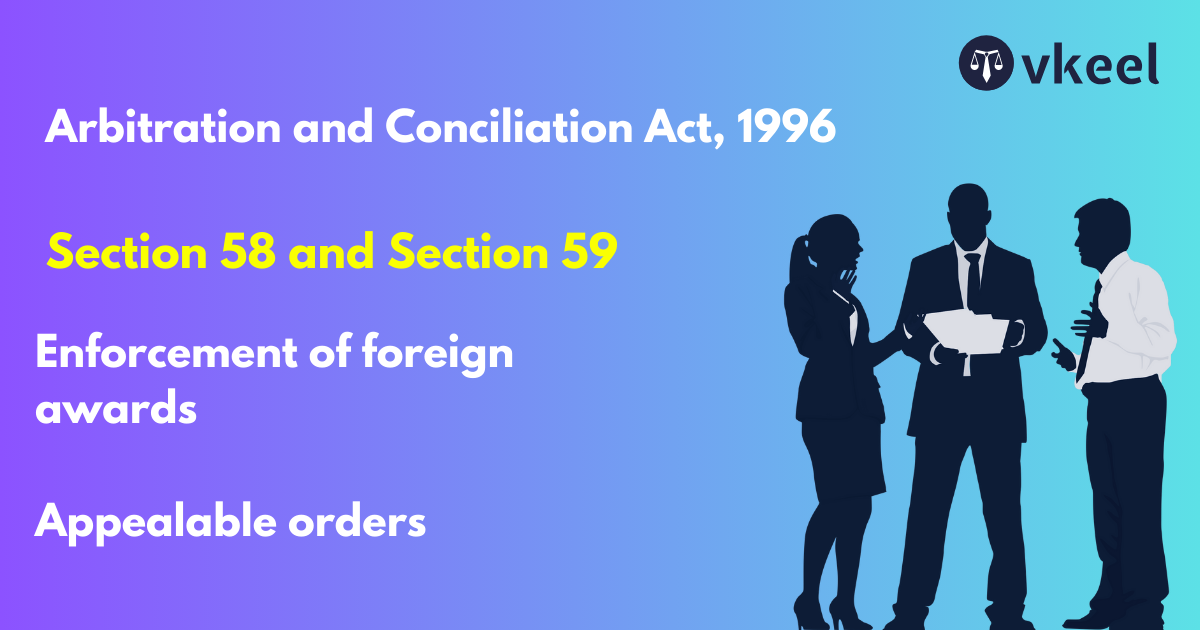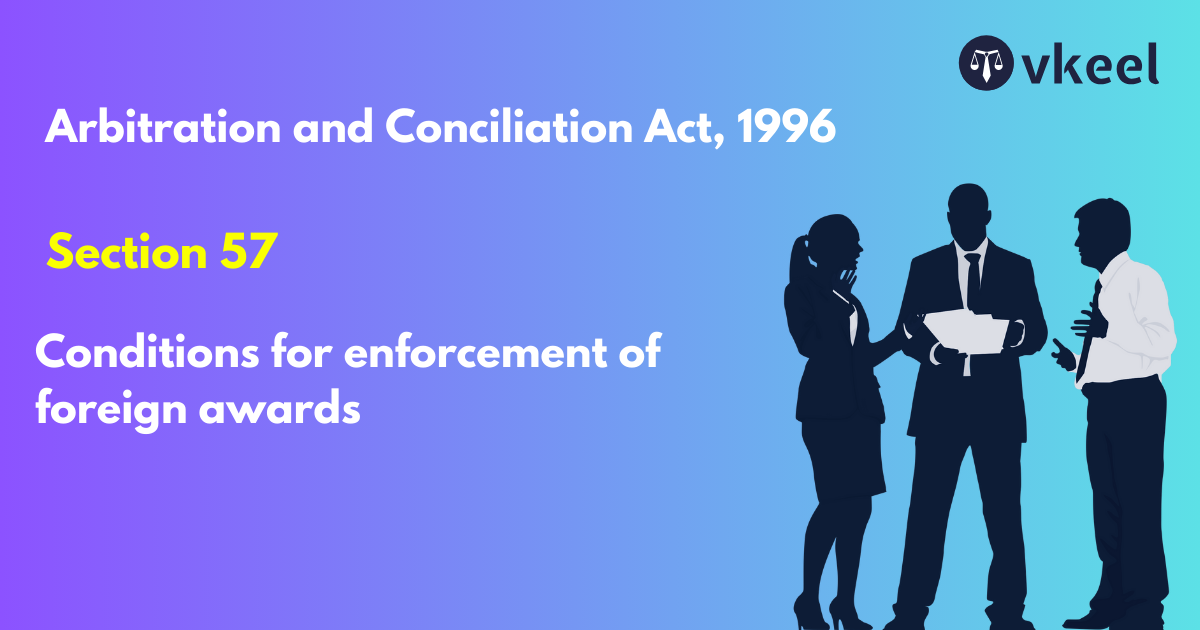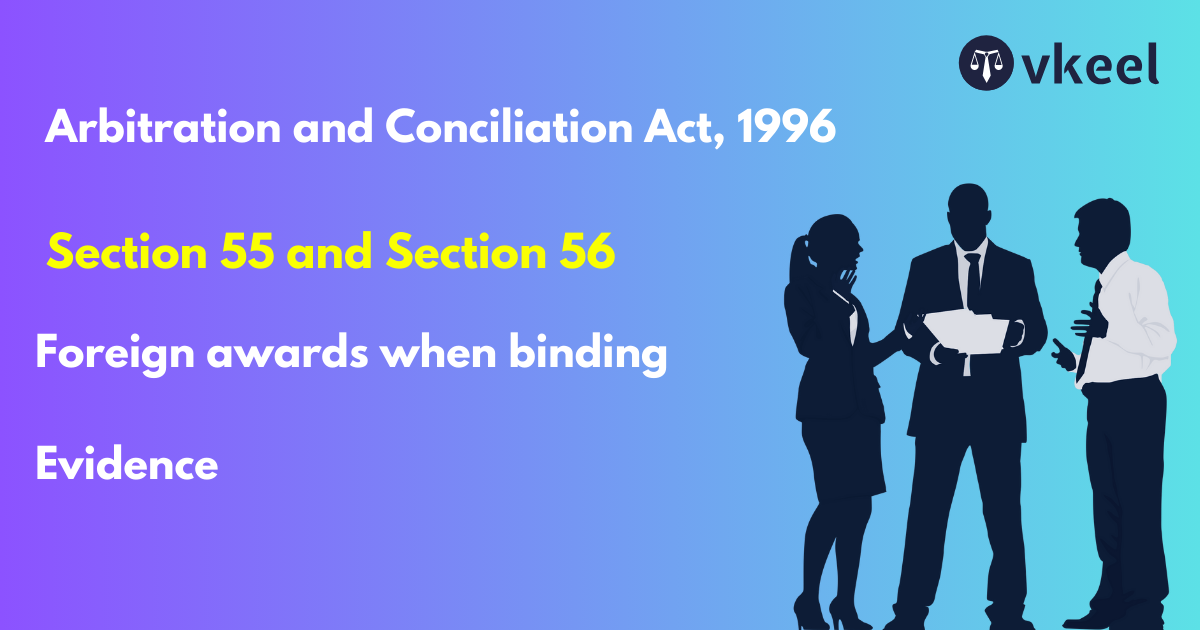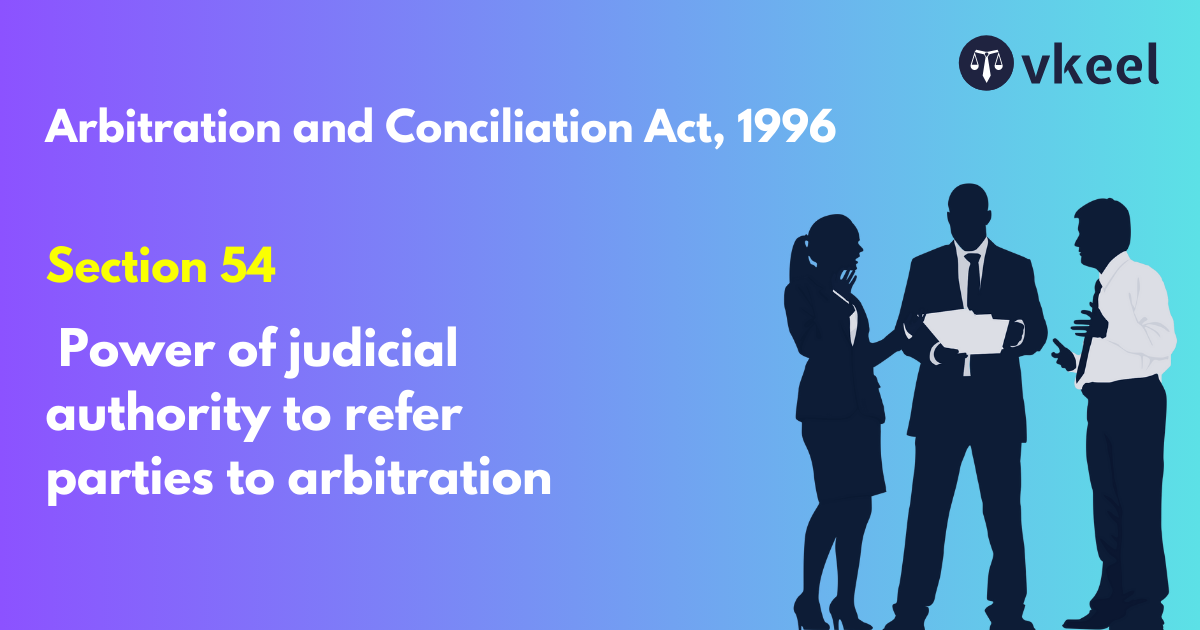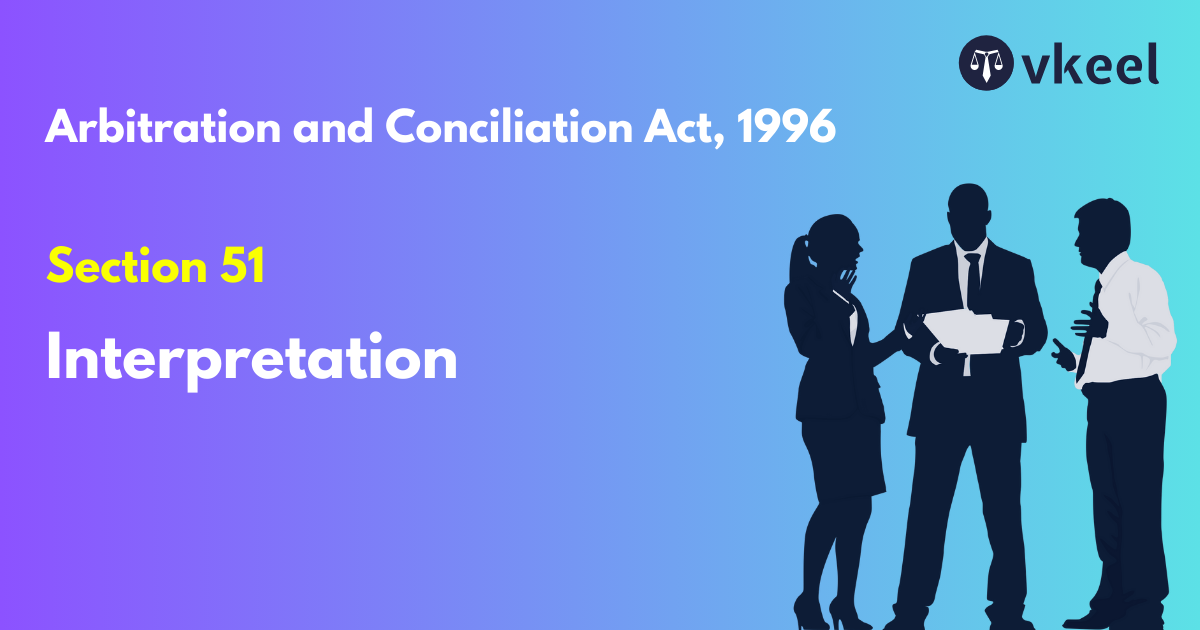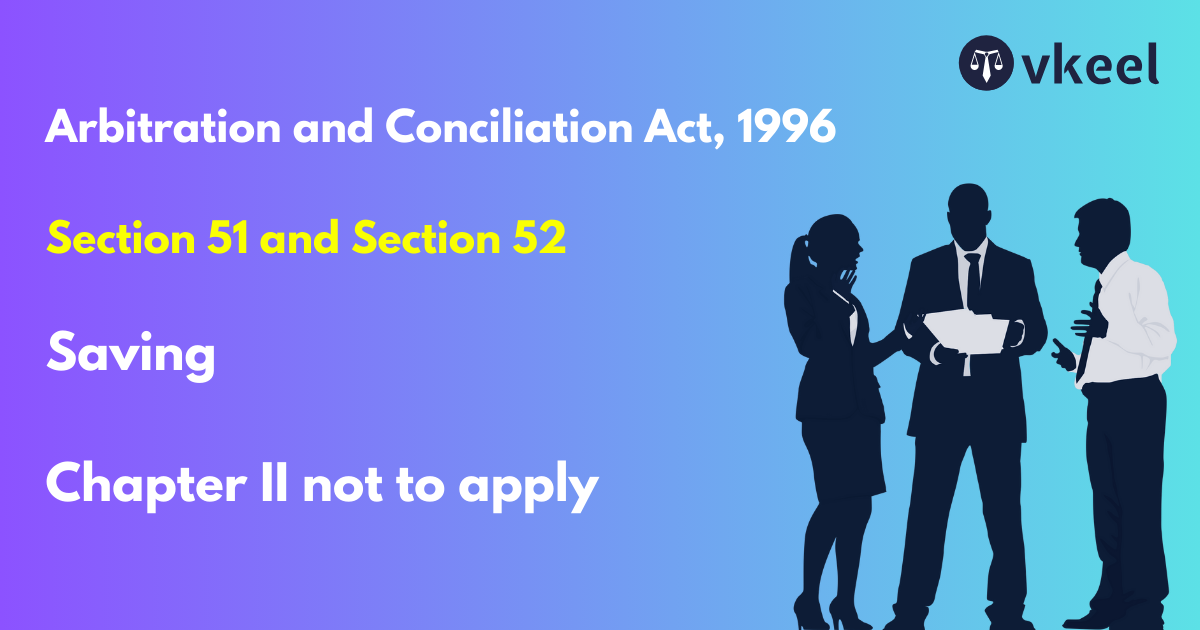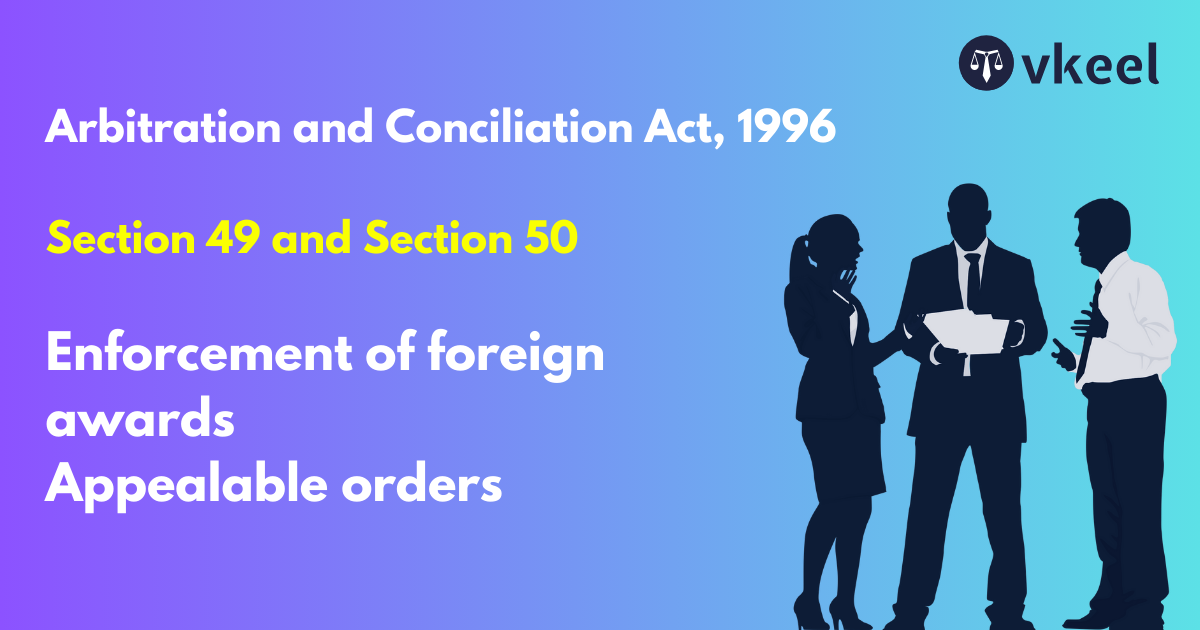Section 4: Arbitration and Conciliation Act , 1996
By Nivedita Dhiman
Table of Contents
Introduction
The Arbitration and Conciliation Act focuses on modernising and facilitates international
commercial Arbitration and Conciliation by consolidating the law.
Section 4 of the mentioned Act is important in the Arbitration process as it focuses on domestic and international Arbitration conducted in India by maintaining the efficiency and integrity of Arbitration proceedings. The method of dispute resolution involves agreement and active participation of both the parties.
This Section states that if a party is aware of non-compliance with the provision of the rules
of the Arbitration but continues to participate in the Arbitration proceedings without raising
an objection, that party is deemed to have waived the right to object later.
Section 4
Waiver of right to object
A party who knows that
(a) any provision of this Part from which the parties may derogate, or
(b) any requirement under the arbitration agreement, has not been complied with and yet proceeds with the arbitration without stating his objection to such non-compliance without undue delay or, if a time limit is provided for stating that objection, within that period of time, shall be deemed to have waived his right to so object.
Interpretation of Waiver
In the context of Section 4 Waiver refers to the intentional relinquishment of a known right, or when dispenses with the performance of something he/she is entitled to or when one in possession of any right, whether conferred by law or by contract, with the factual knowledge does something which is conflicting the right.
Waiver is arbitrary resulting into consequence from some act or conduct of party against whom it operates, and no act of party in whose favour it is made in necessary to complete it. It may be shown by acts and conduct.
The party is not supposed to challenge the proceedings of Arbitration if the right to object is
waived. It makes sure that the parties do not participate in Arbitration without objection so that they can challenge the process later if the outcome is not appealing. This makes the whole process efficient and ensures that the parties do raise objections.
Landmark Judgements
BSNL v Motorola India Pvt Ltd, 2009
The high court appointed an arbitrator in response to an application filed by the respondent, and the appellant did not raise further objection prior to first arbitration hearing, it was held by the appellant clearly failed to meet aforesaid requirement to object to arbitration without delay and as such right to object was deemed to be waived.
UOI v KP Mondal
A representation in order to attract the rule of estoppel need not always be a representation of
a physical fact, but may as well the representation of an attitude or a state of mind, in as much
as the state of man’s mind is as much a matter of fact as the state of his digestion.
Conclusion
Section 4 enhances the process of Arbitration by uplifting the parties to address any irregularities in the procedure thereby promoting the finality of Arbitration awards. A party which knows that a requirement under the Arbitration agreement ha snot complied with and still proceeds with the Arbitration without raising any objection, waives his/her right to object. Waiver is created upon the knowledge of all facts by both the parties.
Section 4 focuses on the importance of timely objections in the process of Arbitration. It
emphasizes that the parties act meticulously in the Arbitration proceedings
Disclaimer:
The information provided in the article is for general informational purposes only, and is not intended to constitute legal advice or to be relied upon as a substitute for legal advice. Furthermore, any information contained in the article is not guaranteed to be current, complete or accurate. If you require legal advice or representation, you should contact an attorney or law firm directly. We are not responsible for any damages resulting from any reliance on the content of this website.

